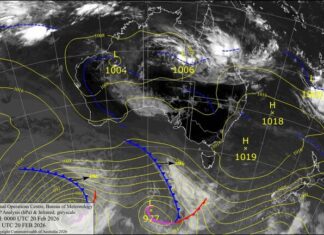Understandably, relevance and impact ignite passion and desire to seek change and influence outcomes. Now more than ever in our town, we see people taking matters into their own hands because they’ve lost faith in the system.
Having been personally impacted by the poor initial delivery of mental health services in our health system, I’ve been left less than impressed, and it has ignited a desire to influence change in this space. At the same time, the invasion of personal property and the damage caused to my sister’s home while she’s receiving mental health support has also meant this is in my backyard, not just something I hear about or see on Facebook and the news.
I’m told that one public brawl involving motorcycle gang members on the Gold Coast in 2013 in front of a politician was the straw that broke the camel’s back when bikie laws were introduced in Queensland. Never one to talk or write about topics I’m not educated in, I’ll have to research for myself, but I doubt I’ll find a headline that reads what I’m told. While I might find information about the brawl and the ‘line in the sand’ moment, the witnesses and the positions they hold may not be as easy to locate.
Right now, we have vigilante groups in the Rockhampton region forming and taking the law into their own hands. While I commend the speed and response after a 000 call for help during an active crime, this response is only one piece of the puzzle in putting a stop to what we’re currently living through, which has caused community members to feel like they need to address this themselves.
What happens after an offender is detained is where they’re let down, and what’s happened up until that moment in their life is evidence of many failed systems compounding on top of each other to create an environment of isolation, fear and desperation—all traits which ignite unacceptable community behaviour.
Many offenders causing chaos in our town are young, and it begs the question, why? What lifestyle and upbringing has contributed to this young person heading down a path of undesirable behaviour? What have we done as a community, state and country to escalate the situation? At the same time, what could we have done differently at the early intervention stage?
We have a community of experienced leaders in this space who’re not being listened to. We have community members, service providers, and front-line first responders who are sick of band-aid patching problems. I think it’s about time our leaders listen to the needs and suggestions of our community constructively through genuine consultation, action planning and accountability. Not shuffling.
There is no one-size-fits-all solution for each community across Australia, and a model which applies in one area is not necessarily going to work in another. It’d be like trying to implement the culture of Apple as an organisation in a hospital. They’re worlds apart and require different things.
Genuine change comes from those in our community who live and breathe the area. But yet, here we are as a community consistently trying to wordsmith our needs to consultants who are so far removed from our world, with the faith that we can secure change, funding, resources, help and support that aligns with the purpose of their engagement as dictated by out of touch bureaucrats.
Suppose we realise we don’t have all the answers, and that’s ok. In that case, we give ourselves permission to explore what works elsewhere and figure out how we might apply a version of a success story to our community—not just looking within our own country but around the world.
A utopia solution would be to identify the problems we’re trying to solve, research similar communities and their previous challenges, understand what’s worked for them, create a version of a model solution that suits our needs and genuinely consult with those who live and breathe the region impacted. And if the area impacted had an overarching funded body disconnected from government departments and political parties which oversaw all of the community work and could make connections, this would enable a shared responsibility alongside the community. A suggestion already researched and determined as needed in the Rockhampton region.
Layer strong performance indicators against the position descriptions of those who’d work in such an overarching environment, and it’ll demand accountability and action. A concept foreign to some who are instead focused on turf protection and misalignment of their purpose to secure funding. A classic case of changing the objective to secure the funding which often occurs when service providers are at risk.
I’m baffled when I think if our current way of operating is considered enough by those responsible. Housing, education, health and youth crime, to name a few. Where is the accountability that should be demanded in a conducive collaborative fashion that results in shared outcomes and objectives, resulting in positive change?
I, for one, have had enough of the smoke and mirror messaging.
Recognise what’s not working, take accountability and create a plan different from what we’re doing today. If we continue to do what we’ve always done, we’ll continue to get the results we’ve always got.
After all, the definition of insanity is doing the same thing over and over and expecting different results.








